BREAKING NEWS: Prosecutor Says Germanwings Co-Pilot Purposely Crashed Plane
Voice recordings retrieved from the wreckage of the Germanwings plane that crashed on Tuesday suggest that one of the pilots was locked out of the cockpit and then tried to break down the door to gain entry minutes before it hit Alpine slopes in southern France.
Agence France Presse and the New York Times quote an unnamed investigator who describes the sounds heard from the plane cockpit. The official describes hearing a chair being pushed back and the door opening and closing. Then knocking is heard.
The investigator told the New York Times: “The guy outside is knocking lightly on the door, and there is no answer. And then he hits the door stronger, and no answer. There is never an answer. You can hear he is trying to smash the door down.”
Germanwings said in a statement that at the moment, “we do not have information from competent authorities to confirm this story. We are doing everything to get the most information possible and we are not engaging in speculation.”
After the attacks on the U.S. on Sept. 11, 2001, airlines, cockpit doors were strengthened and altered so they could only be opened from the inside.
The focus of the investigation will include the character and health of the pilots. Aviation experts told AFP: “If the pilots did not stop the airplane from flying into the mountains, it is because they were unconscious or dead, or they had decided to die, or they were forced to die.”
With Europe in shock at the crash, the leaders of the countries most affected, French President François Hollande, German Chancellor Angela Merkel and Spain’s Prime Minister Mariano Rajoy landed by helicopter in the tiny village of Seyne-Les-Alpes on Wednesday, the base for rescue teams scouring the Alpine slopes. Hollande later told reporters that there had been “not the slightest possibility of saving anyone, because there were no survivors.” After flying over the area, German Foreign Minister Frank-Walter Steinmeier said it was “a picture of horror.”
Rescue teams face daunting logistical tasks working on steep mountain slopes, far from the narrow twisting roads that wind through the Alps. Many have been dropped from helicopters and then roped together for safety as they pick their way through debris to collect body parts of the victims.
Germanwings flight 9525, which crashed midway from Barcelona to Dusseldorf, had six crew and 144 passengers from about 15 different countries, mostly from Germany and Spain. Among the dead were 16 teenagers from a small German town called Haltern, who were flying home from a week’s school exchange program in Barcelona. One of their teachers had just got married. Also aboard were two Americans, and three generations of one Spanish family. “We are in a state of shock and grief and mourning,” Germanwings CEO Thomas Winkelmann told reporters, adding that some crew members were too distraught to work.
Then there is the job of identifying the bodies. Police told Hollande, Merkel and Rajoy that they were designing a system to transport the remains off the mountain for DNA identification, probably in Marseille.
Witness Scenes From the Plane Crash in the French Alps
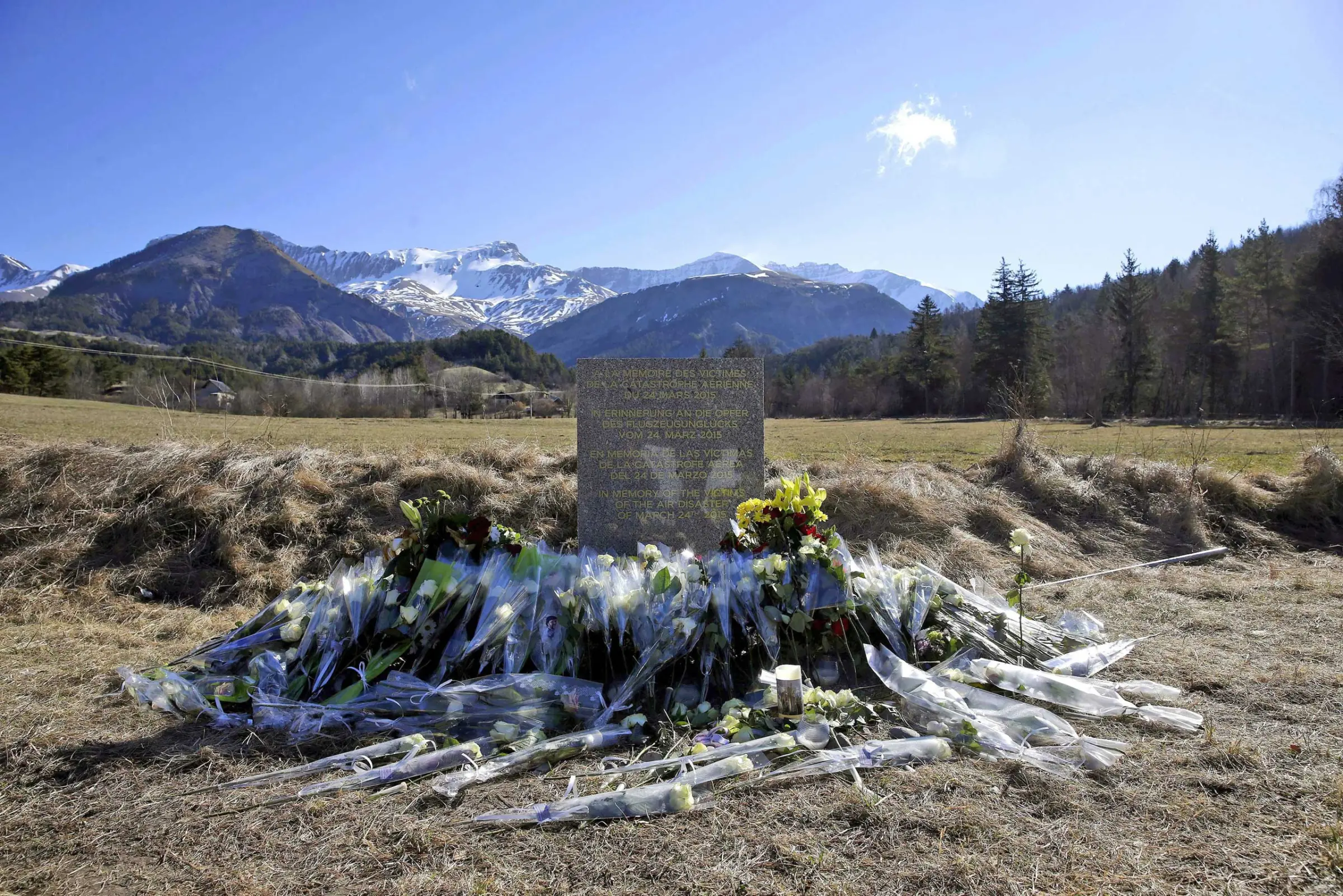

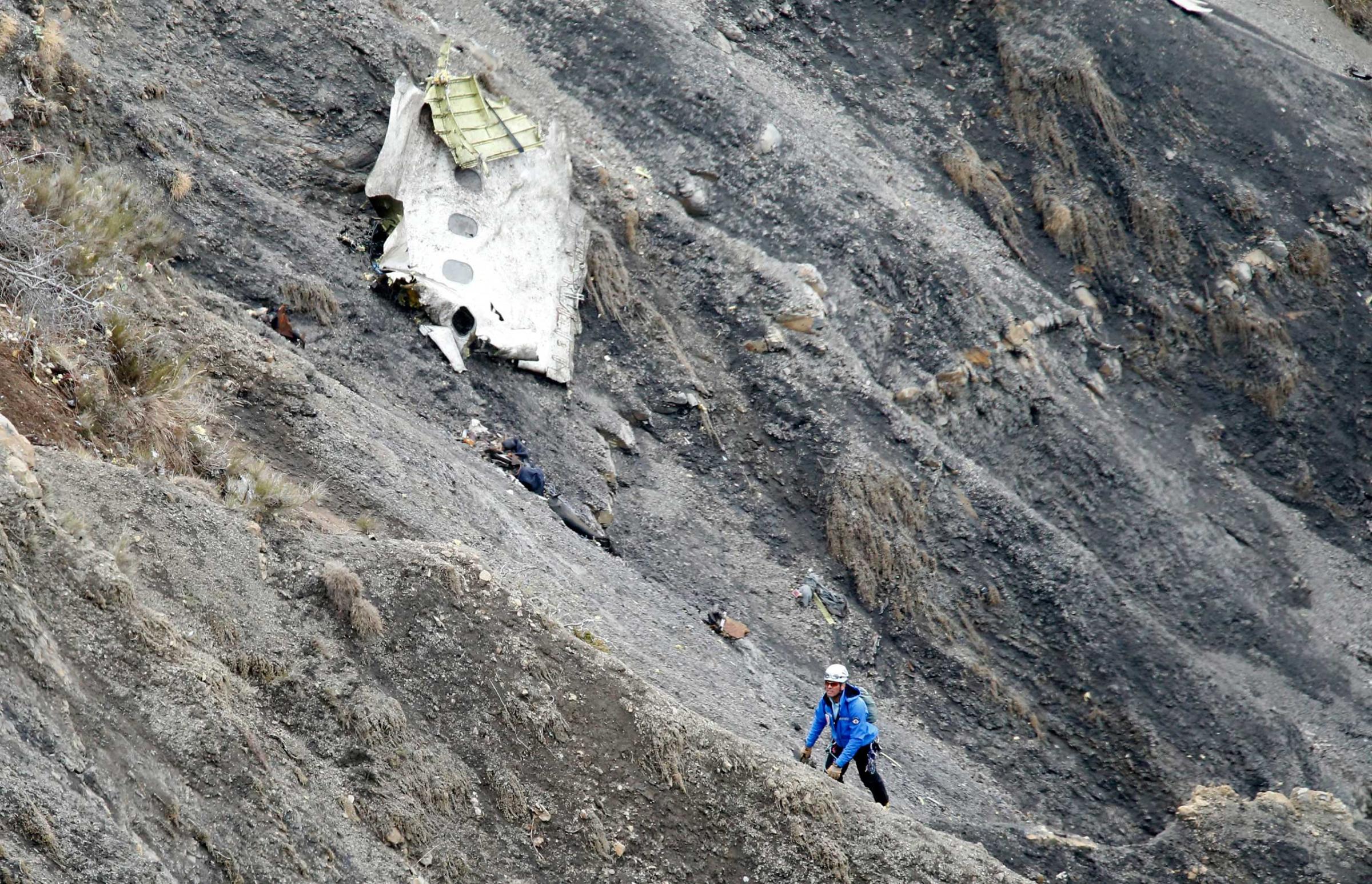
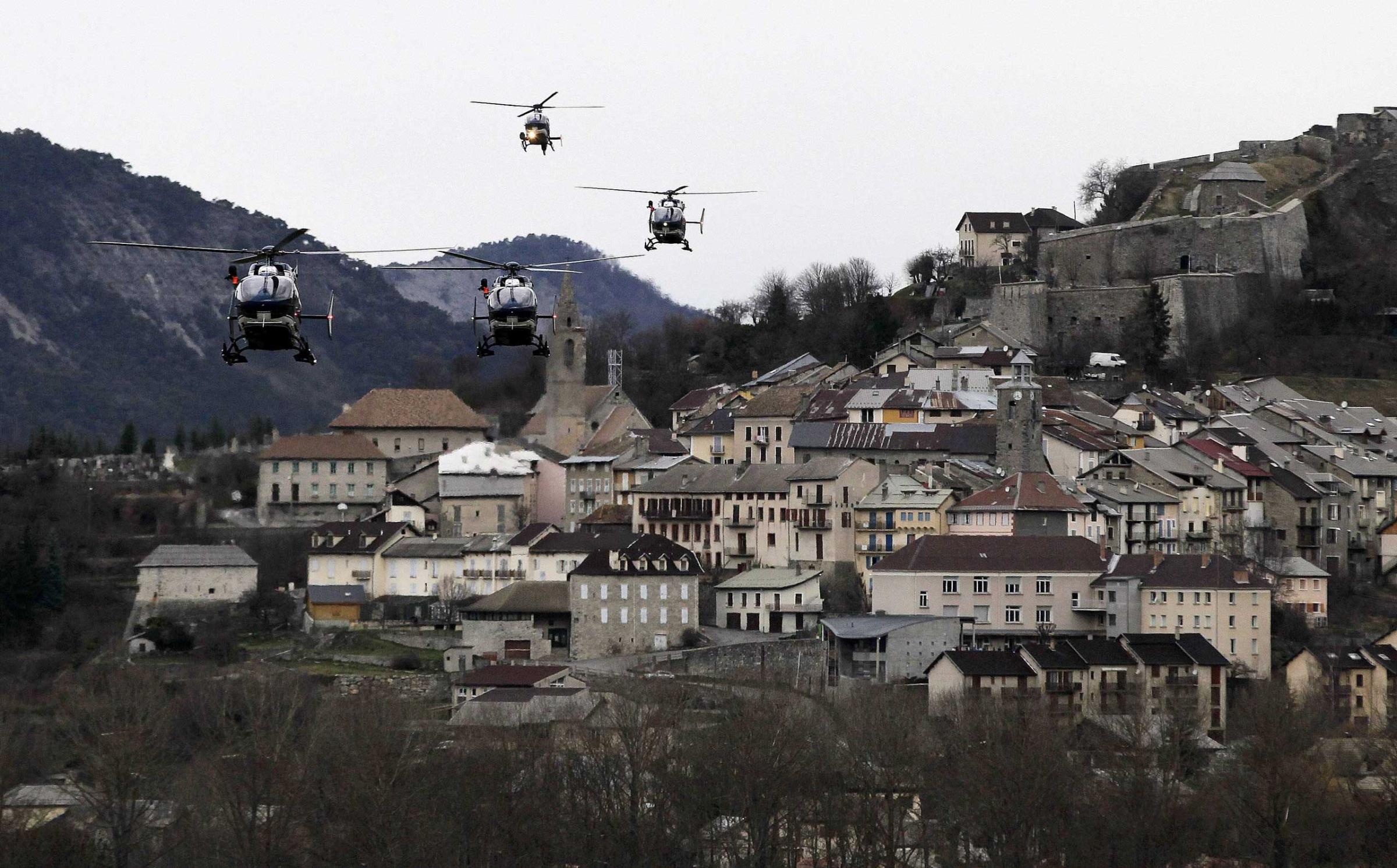
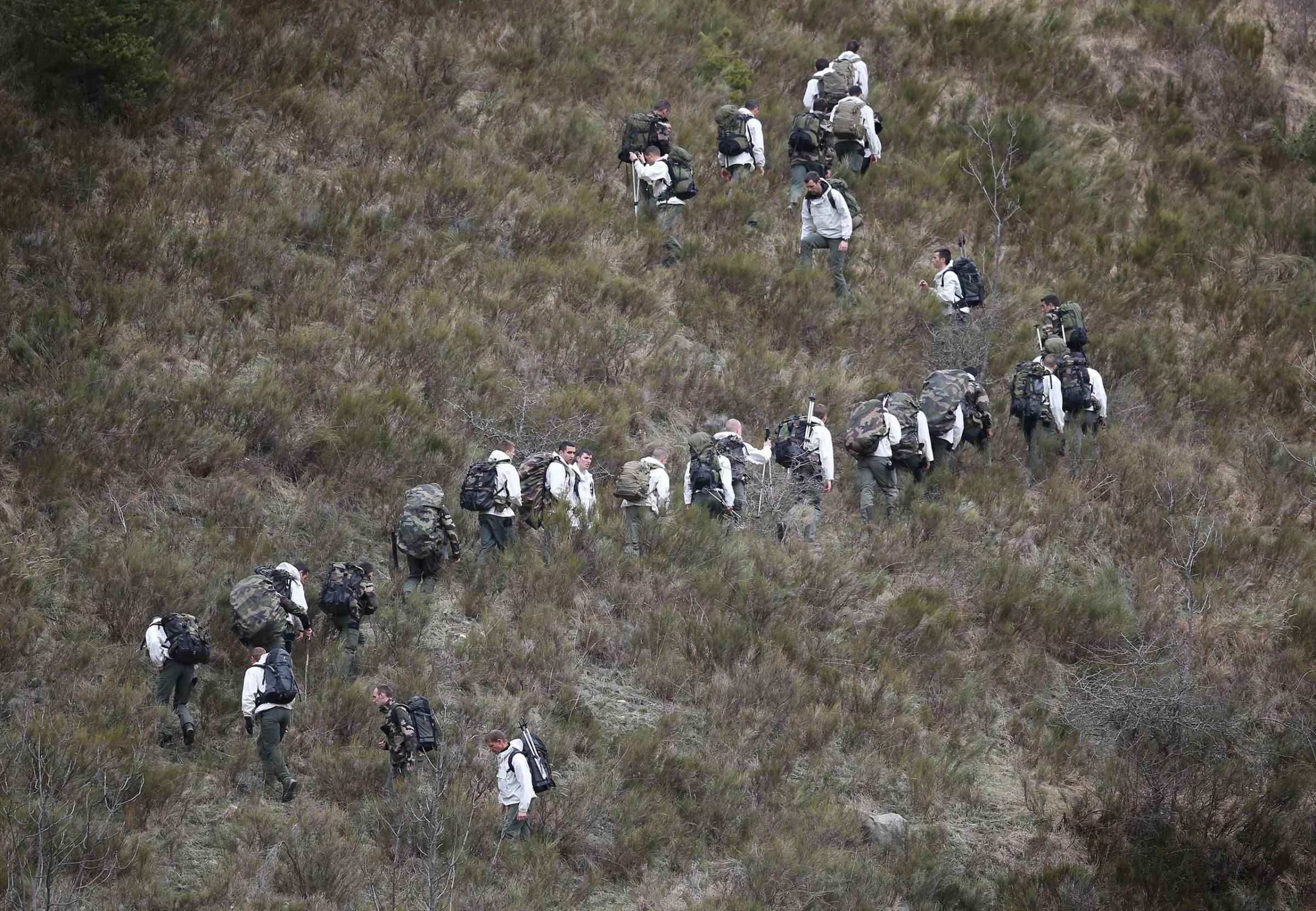
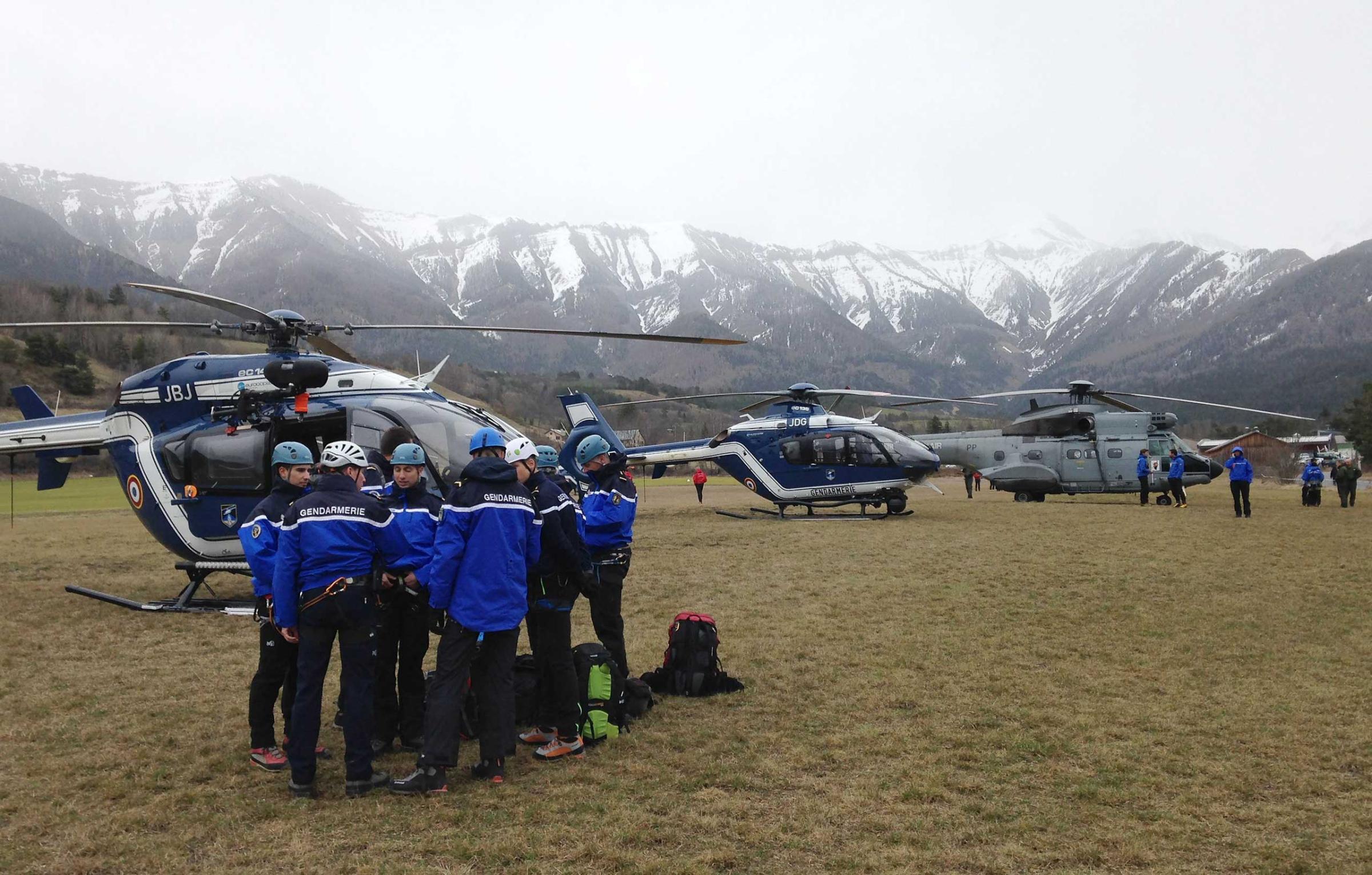
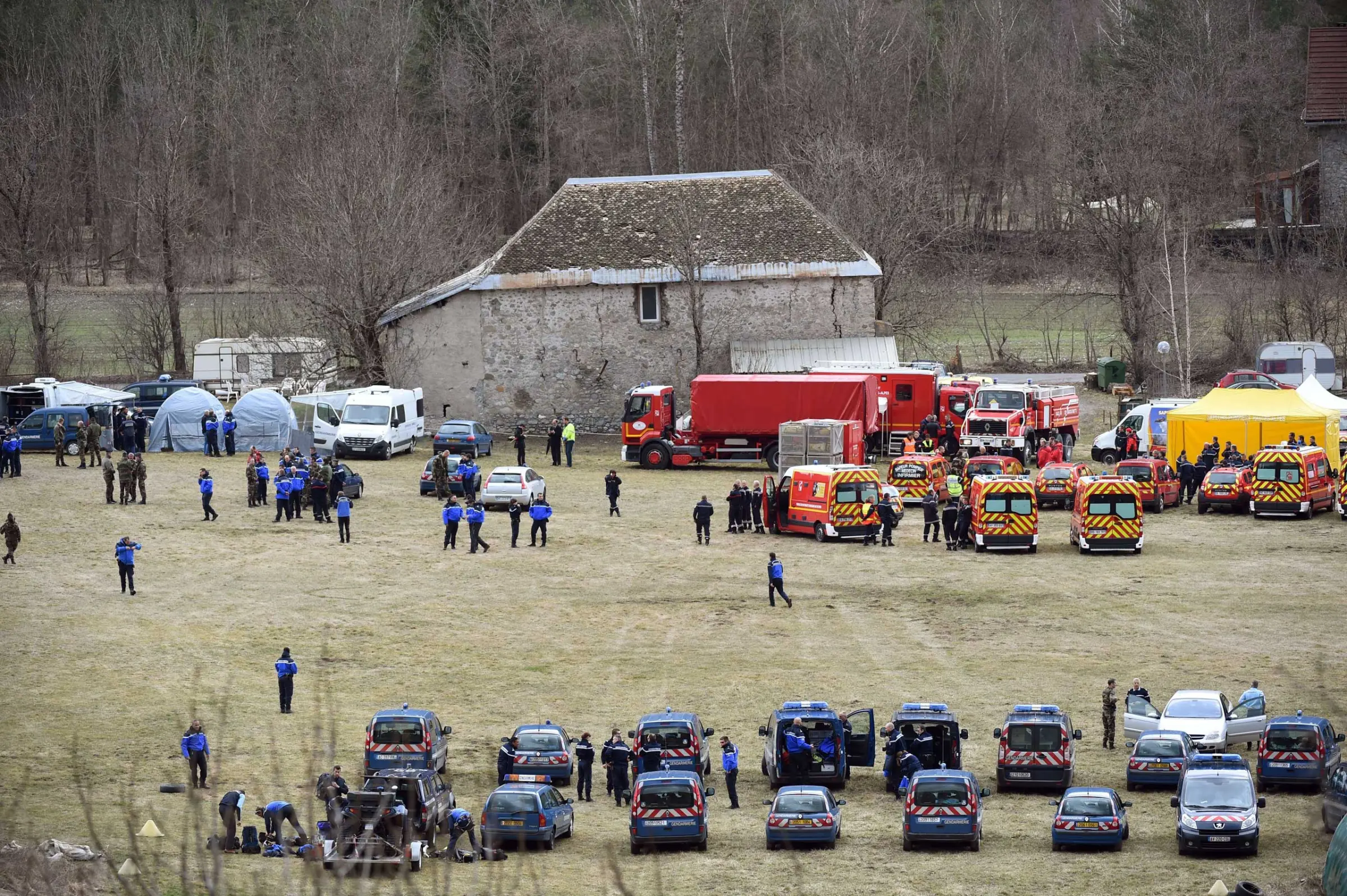
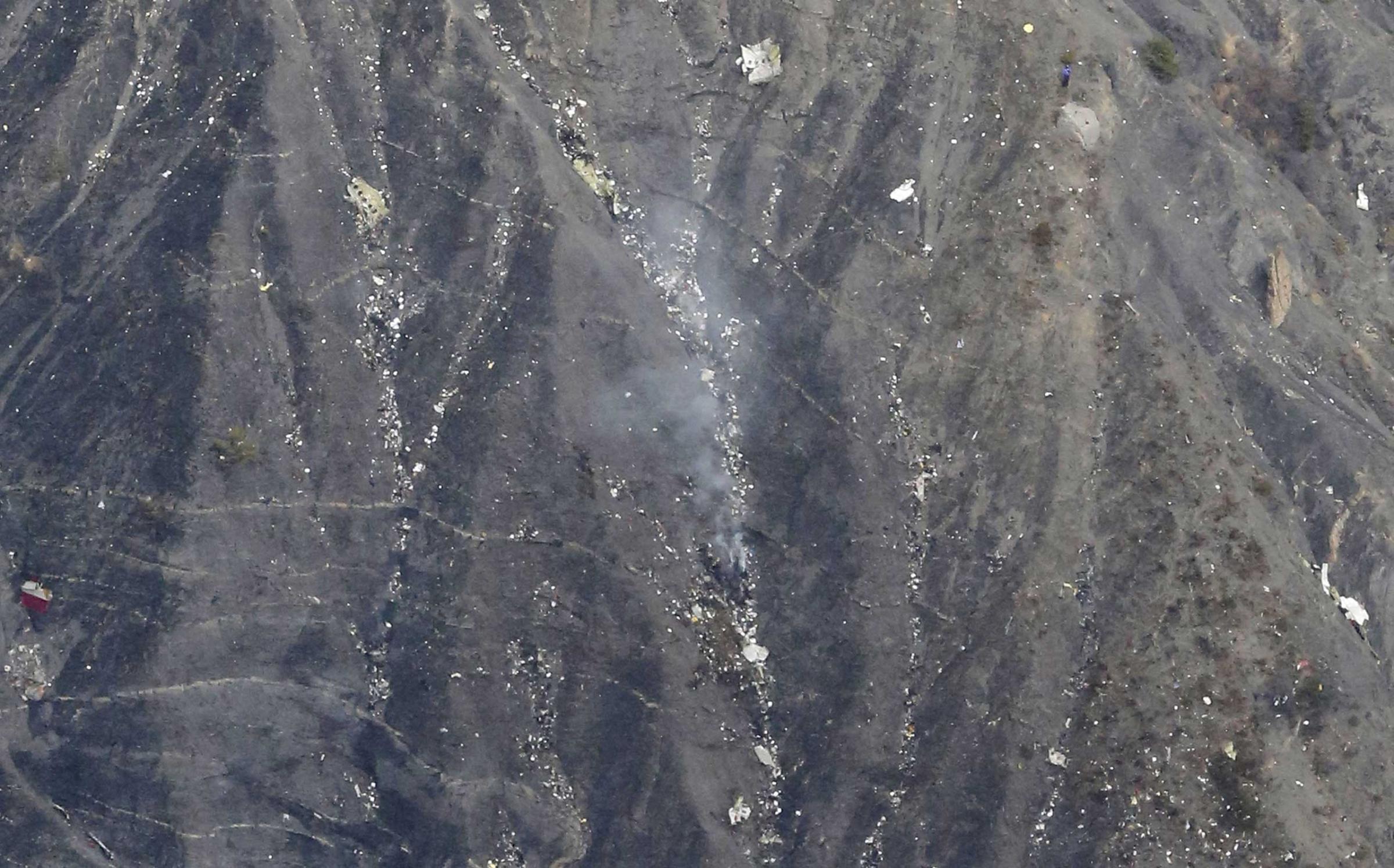

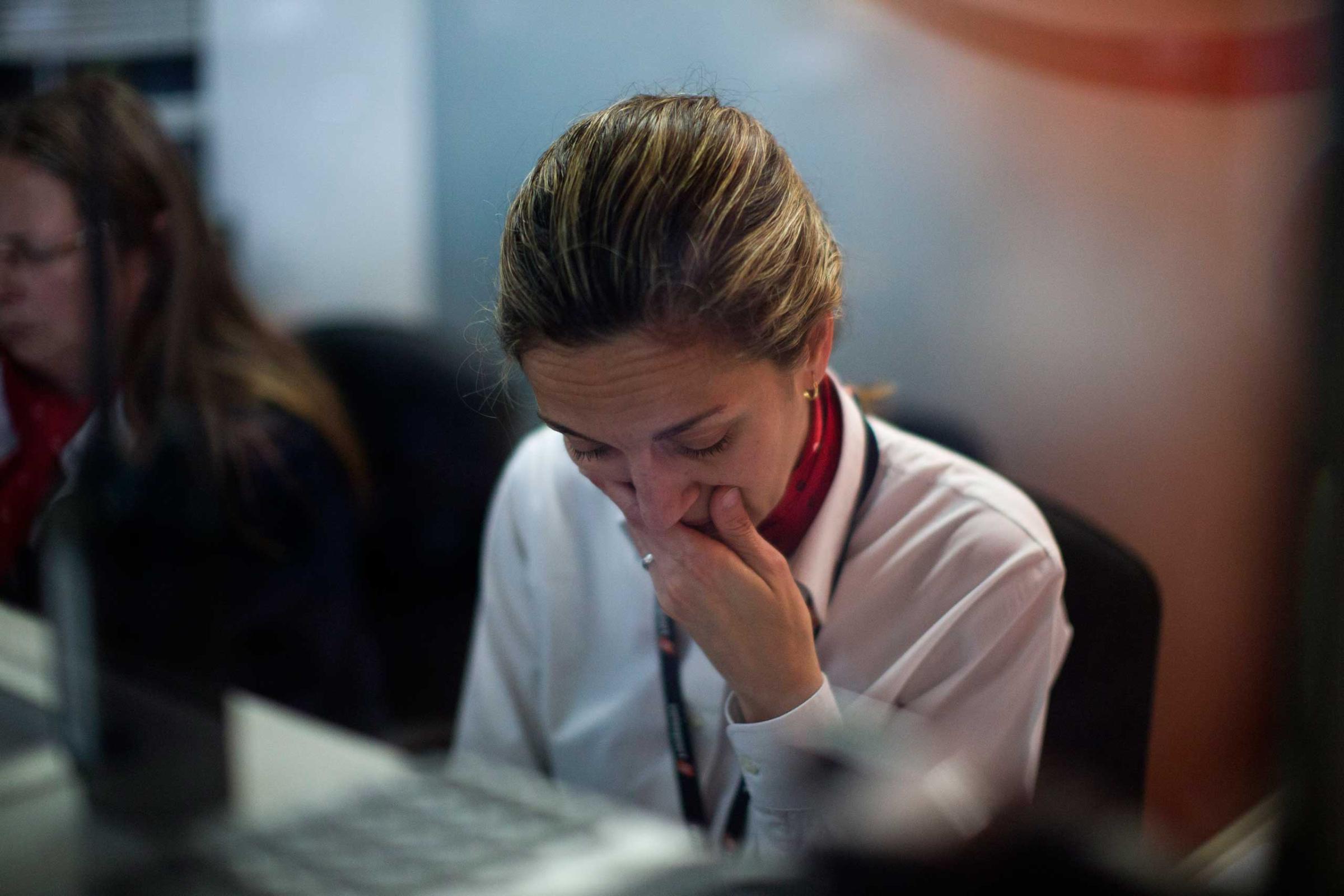
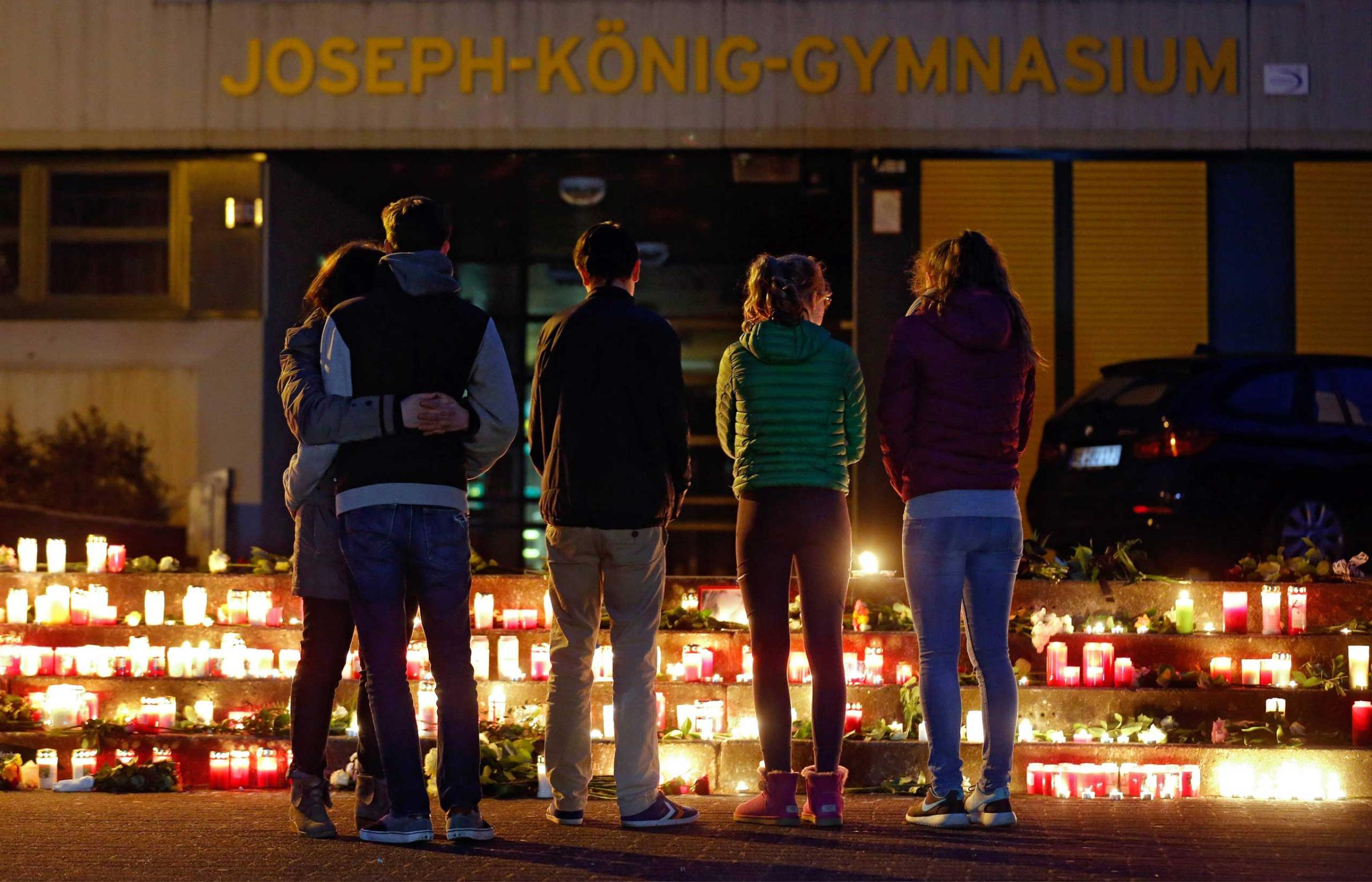
The voice recordings may have added important clues to what happened to the plane, an Airbus A320, one of the European manufacturer’s best-selling models. It was in seemingly good condition — Germanwings said it was inspected the day before the crash. It lost control at cruising altitude of about 36,000 feet, rather than on takeoff or landing, as is the case in many plane crashes and the pilots did not send out a distress call before the plane slammed into the mountain. Complicating the investigation, the plane obliterated on impact. “When we go to a crash site we expect to find part of the fuselage, but here we see nothing at all,” Xavier Roy, the pilot coordinating air operations, told Reuters.
Rescue teams found the cockpit voice recorder, one of the two so-called black boxes, on Tuesday, badly dented and twisted in the impact. Jouty, the air-safety director, told reporters that there were human voices on the recording, yet they did yet not know whose they were.
The recording helps explain what happened between 10.30 a.m. and 10.32 a.m. That is when the two pilots lost radio contact with control towers in southern France. A local traffic controller sent a “loss of radio contact” distress signal at 10:47 a.m., saying the pilots had not answered several calls, Le Monde reported on Wednesday. A few minutes after that, the plane crashed.
In understanding what happened, officials will try interpret even the silences on the voice recorder — perhaps clues about whether the pilots were somehow incapacitated, or whether the engines were running normally. “Even if there is no conversation in the last half hour, we can then work on the sounds inside the cockpit,” French Transportation Minister Alain Vidalies told Europe1 radio on Wednesday.
With France still deeply on edge after a spate of terror attacks in Paris in January killed 17 people, French officials tried to assure people that terrorism seemed a highly unlikely cause for Tuesday’s crash, in part because the plane did not explode in the air. Still, the French Interior Minister Bernard Cazeneuve told the RTL network, “all hypotheses must be considered, as long as the investigation has not yielded any results.”
Read next: Germanwings Flights Disrupted as Some Crew Refuse to Fly After Crash
More Must-Reads from TIME
- Caitlin Clark Is TIME's 2024 Athlete of the Year
- Where Trump 2.0 Will Differ From 1.0
- Is Intermittent Fasting Good or Bad for You?
- The 100 Must-Read Books of 2024
- Column: If Optimism Feels Ridiculous Now, Try Hope
- The Future of Climate Action Is Trade Policy
- FX’s Say Nothing Is the Must-Watch Political Thriller of 2024
- Merle Bombardieri Is Helping People Make the Baby Decision
Contact us at letters@time.com